
Written by Trevor Baxendale, Cavan Scott,
Paul Darrow and Steve Lyons
Produced and directed by John Ainsworth
Big Finish Productions, 2018
Stars: Paul Darrow (Avon),
Michael Keating (Vila), Jan Chappell (Cally),
Steven Pacey (Tarrant), Yasmin Bannerman (Dayna),
Jacqueline Pearce (Servalan), Alistair Lock (Zen/Orac),
Hugh Fraser (The President), Trevor Littledale (Maldor),
Imogen Church (Niner), Tam Williams (Jay),
Tania Rodrigues (Captain), Issy Van Randwyck (Eve Adams/Nada), Anthony Townsend (Commander/Robot),
John Green (Mordekain), Toby Longworth (Lockwood),
Kerry Skinner (Zheanne)
We’ve no idea if we’re surrounded by friend or foe. That’s the trouble with civil war – both sides look the same!
Avon, B7 – Crossfire: Shock Troops
At the conclusion to the first boxset in B7’s Crossfire saga, President Servalan (Jacqueline Pearce) became aware that the man she deposed – the former President of the Terran Federation (Hugh Fraser) – was building an army and preparing to move against her. A Federation civil war was inevitable …
In Crossfire – Part Two, the war is in motion, and the Liberator crew are confronted with a dilemma. Do they take a side in the conflict or, as Avon (Paul Darrow) suggests, run disruption against both sides? And what happens when the crew become pawns in the former President’s machinations against Servalan?
This middle part of the Crossfire saga doesn’t disappoint. The four serials are well written and performed, with only the third chapter – Erebus (written by one Paul Darrow) – being the weakest link.
Trevor Baxendale’s Funeral on Kalion is the pick of the set. For the second consecutive play (not counting the recent B7 40th anniversary boxset The Way Ahead), listeners are served up a heist story – after Crossfire - Part One concluded with the episode Fearless. However, where the big reveal in Fearless was a damp squib, the twist in Funeral on Kalion is, for all its simplicity, ingenious.
In the serial, Servalan and her presidential predecessor visit the independent world of Kalion to pay their “respects” to its recently deceased sovereign. Given Kalion’s independence is tolerated by the Federation in exchange for the manufacture of warships for more than 60 per cent of its space fleet, both presidents see an opportunity to exploit the power vacuum and seize control of Kalion’s shipbuilding facilities for themselves. The sovereign’s death also attracts the attention of the Liberator crew, with Avon realising Kalion’s shipyards could be the key (figuratively and literally) to the mutual destruction of the presidents and the downfall of the Federation.
Baxendale’s clever script uses plenty of misdirection to distract not only the three parties vying for Kalion’s control but the listener as well. He also successfully injects plenty of political irony and subtle humour into the narrative. This script marks the first face to face meeting (at least on audio) between Fraser’s nameless President and Pearce’s Servalan, and their dialogue and pithy exchanges are extremely well written and wonderfully performed by the two actors.
The regular cast members are also on song, with Vila’s scepticism about death and funerals being one of the highlights of the play, and conveyed with all the alacrity that you’d expect of Michael Keating:
Vila: It’s all just a racket anyway!
Tarrant: What is? Death?
Dayna: How very existential!
Vila: No, funerals! No one benefits from a funeral – except the undertaker!
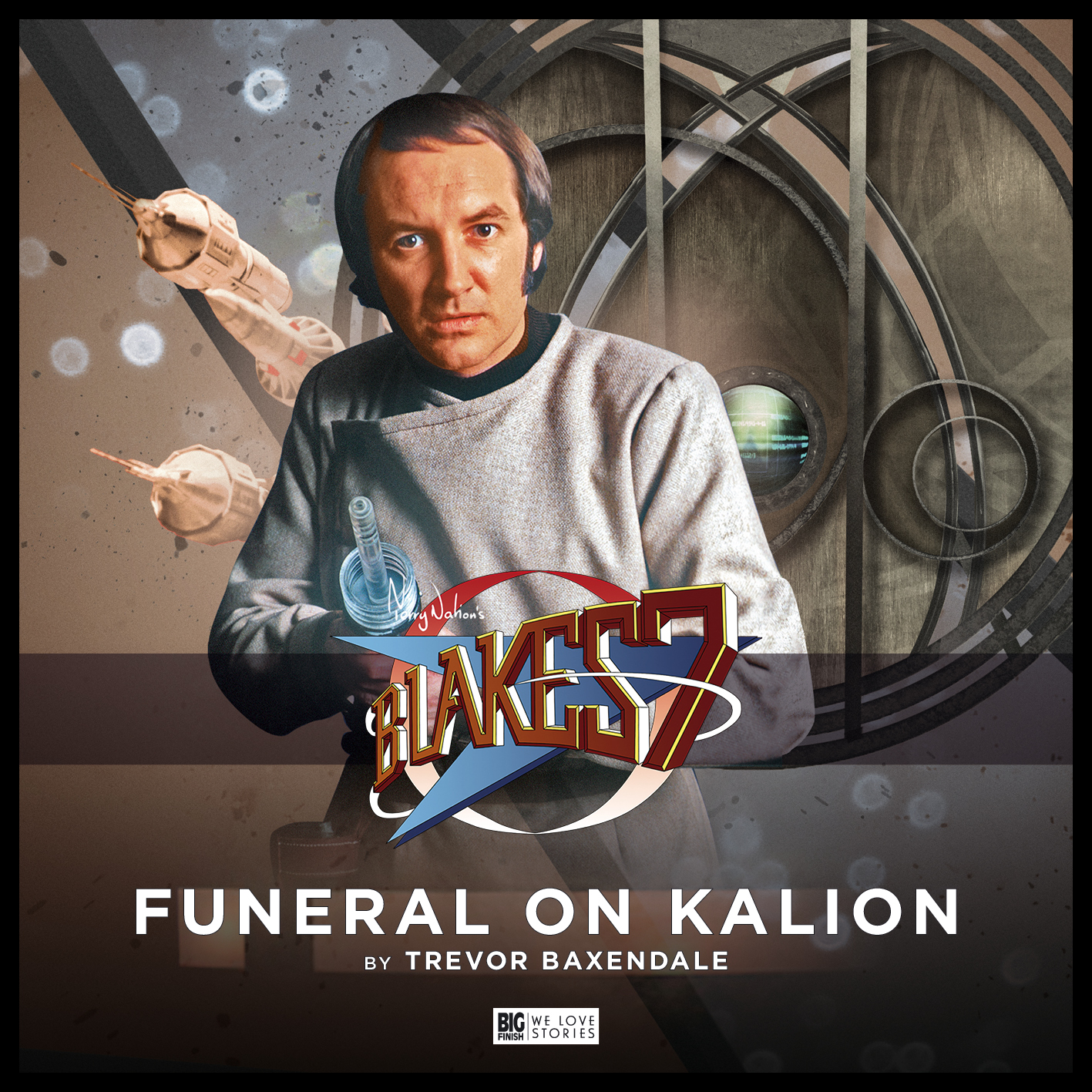 However, the standout performance of the play is from Trevor Littledale as Maldor, the late sovereign’s chancellor. Littledale delivers a regal, diplomatic and understated turn that makes you warm to him as a character, little realising that he has a few tricks up his iron sleeve. His reserve also stands out against the extroverted Servalan and the smooth-talking, brown-nosing President. Indeed, this is one of the few B7 episodes where you find yourself rooting not for the Liberator crew but for Maldor and Kalion. Indeed, the conclusion – and the twist – is a masterstroke, and it seems only fitting that Kalion’s destiny is assured.
However, the standout performance of the play is from Trevor Littledale as Maldor, the late sovereign’s chancellor. Littledale delivers a regal, diplomatic and understated turn that makes you warm to him as a character, little realising that he has a few tricks up his iron sleeve. His reserve also stands out against the extroverted Servalan and the smooth-talking, brown-nosing President. Indeed, this is one of the few B7 episodes where you find yourself rooting not for the Liberator crew but for Maldor and Kalion. Indeed, the conclusion – and the twist – is a masterstroke, and it seems only fitting that Kalion’s destiny is assured.
Shock Troops, from Cavan Scott, is the boxset’s obligatory “experimental” episode. With one or two exceptions (notably Kevin Lloyd’s Trooper Par in the episode Trial, in the second season of the original TV series), B7 never really highlighted the men – or women – behind the faceless masks of the Federation’s soldiers. (Indeed, the only women we ever saw in uniform were Servalan and Travis’s Mutoid posse.) For the most part, on TV, Federation soldiers were dehumanised, ruthless thugs and cannon fodder for Blake and his cohorts. Shock Troops is Scott’s attempt to illustrate not only what life is like on the frontline for Federation troops but to show the humanity and virtues of some of them.
The serial is told largely from the viewpoint of Trooper 229R (or “Niner”, played by Imogen Church), and briefly through her colleague 971J (or “Jay”, played by Tam Williams), as their unit seeks to restore law and order on a remote pastoral colony. In addition to being told from Niner’s point of view, the serial also occasionally takes on a video game feel, as we visualise combat scenarios akin to a first person shooter. However, after a rebel attack kills most of the unit’s members, new recruits arrive in the form of service robots and Trooper 817A (or “Alpha”). However, Alpha is no ordinary trooper. It is evident (at least to the listener) that the newcomer is Dayna Mellanby (Yasmin Bannerman), whom the listener assumes is on a covert mission for the Liberator crew.
It’s a credit to Scott (BF’s former B7 range producer) that his narrative style and characters for this serial keep the listener engaged in the first 15 minutes before Dayna materialises and pushes its momentum along. Having in recent years written some spin-off fiction for that other space opera in a “galaxy, far, far away”, Scott has taken a leaf from the pages of Disney’s latest Star Wars trilogy and not only made this squad of Federation troops nameless (designated only by alphanumeric titles) but also heavily inhabited by women (as we see amongst numerous examples in the First Order). As Scott puts it in the CD extras, when it comes to gender, the Federation military is an “equal opportunities death machine”.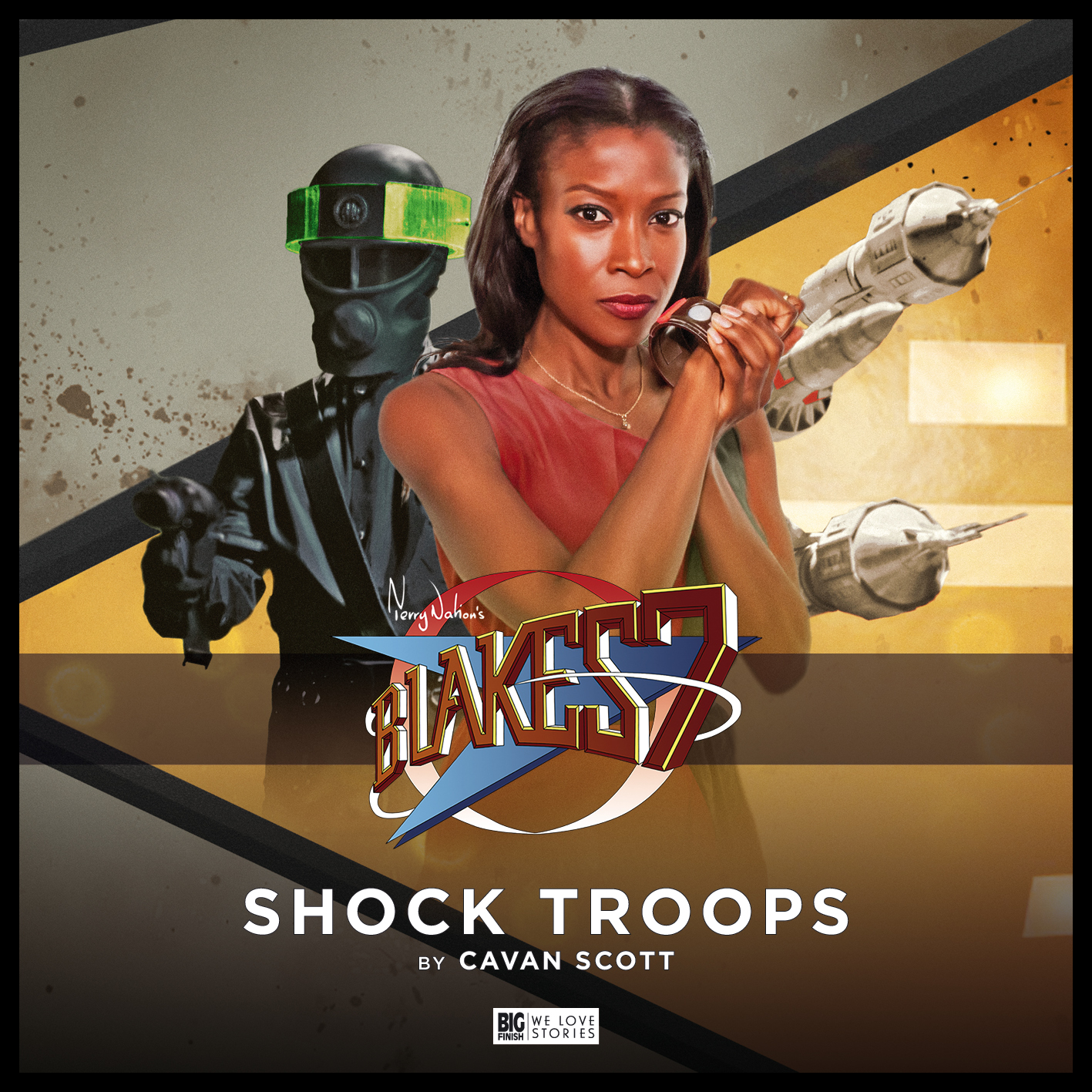
Scott, however, also hides in plain sight a revelation about Dayna, Niner, Jay, other members of their squad, and possibly even their commanding officer Captain 492M (Tania Rodrigues), that deserves further exploration in future B7 instalments beyond the Crossfire saga. In some respects, the disclosure (and Avon’s motives in the serial’s concluding moments) are more suited to events in season four of the TV series (and not season three, in which this tale is ostensibly set). It is also disappointing that the events of Shock Troops – and their impact on Dayna as a character – are self-contained and not referenced in the subsequent stories in the set. That said, B7 on TV was equally as guilty of inconsistency in this regard.
Darrow’s Erebus is also guilty of inconsistency, albeit with regards to characterisation of the Liberator crew rather than necessarily story (or program) continuity. The serial itself is a vast improvement on Darrow’s other B7 works, largely (I suspect) because producer John Ainsworth has invested considerable time and effort into ensuring Darrow’s script doesn’t run off-track.
The title of the serial draws its name from an idyllic Earth-like planet that also happens to be the President’s base of operations in the civil war against Servalan, but the plot has little to do with Erebus – nor even the President. Darrow’s script focuses on what is best described as Avon and Orac’s feminine “counterparts” – the seemingly emotionless, cold Federation colonel Eve Adams and her computer Nada (both played by Issy van Randwyck). Adams has a score to settle with Avon and their prior history contradicts the circumstances that led to his incarceration with Blake at the beginning of the TV series (not to mention it strongly implies he had an additional lover to Anna Grant).
In many ways, the story is a cat-and-mouse game between the Liberator crew, Adams and the President but with very little sense of intrigue or ingenuity. Darrow attempts to infuse a lot of humour into his script to substitute for the lack of drama or action but for the most part it falls flat. An exchange between Tarrant and Vila about “cross-dressing” Federation guards almost goes as much over the listener’s head as it does Vila’s! It’s not so much Tarrant as a character being whimsical as Darrow as a writer being infantile! The President’s Noel Coward-like robot aide de camp – with an emphasis on camp! – starts off as mildly amusing but as the story progresses the joke behind it runs very thin. Nevertheless, Anthony Townsend deserves a mention for his dual, vastly different performances as the robotic aide de camp and a butch yet incompetent Federation space commander. Both parts are caricatures but it’s certainly not obvious they’re the same actor!
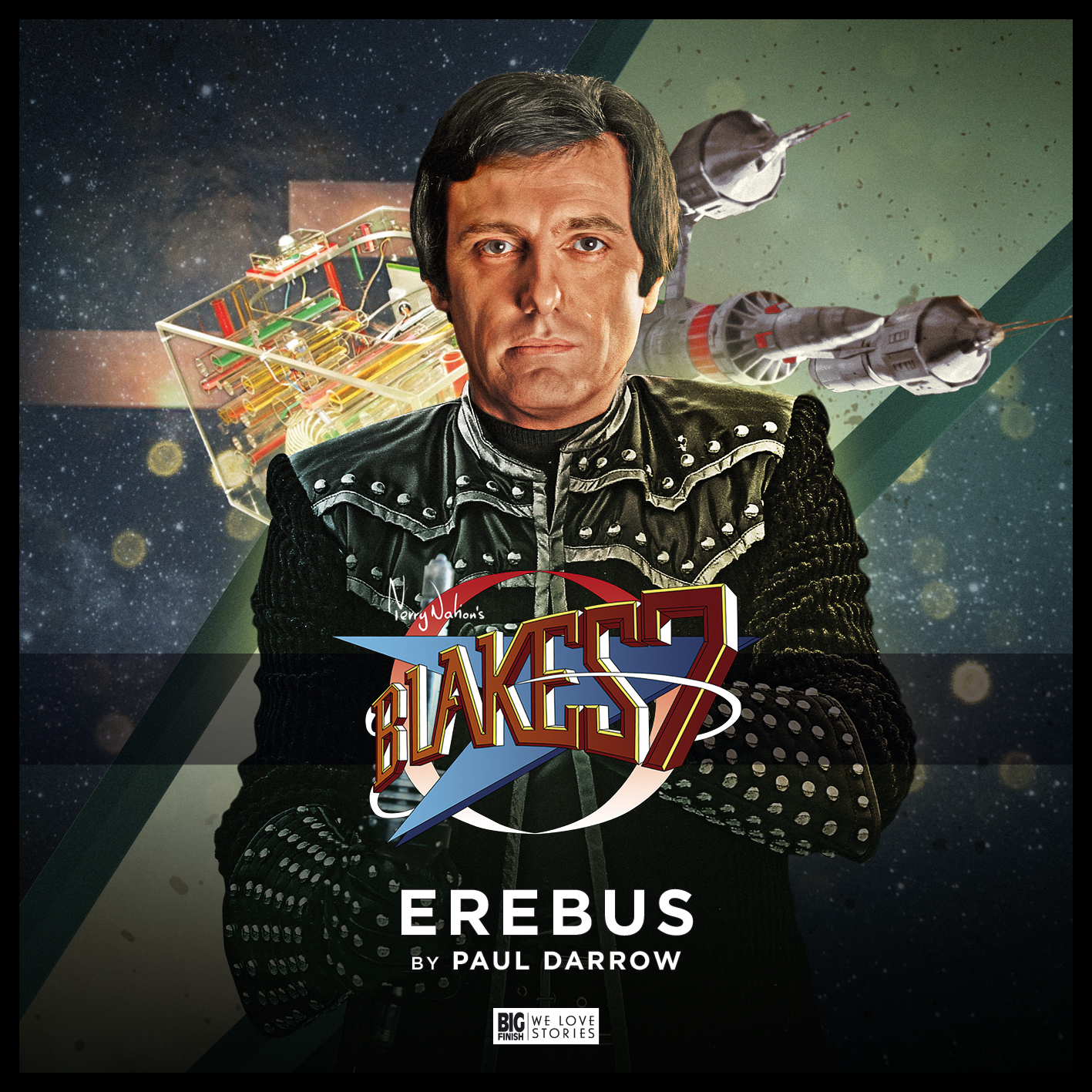 But what makes this story most disappointing is the portrayal of the regular characters. To his credit, Darrow resists giving Avon all the best lines and the best scenes. However, while he ought to know all the characters well, the dialogue he writes for them just doesn’t sound like any of them. There is also a sense of distrust and bitchiness between the characters, particularly Avon and Cally, that just doesn’t seem warranted in the story and is not portrayed in any of the other serials in this boxset (or indeed in the TV series). “I’m the telepath, Dayna!” Cally almost snaps at one point, when Dayna expresses reservations that Tarrant and Vila may be heading into a trap. Vila also shows a dependence on Tarrant’s heroism that jars with his character. The supporting cast try their best with the script but, as I’ve written elsewhere, Darrow is exceptional when he works with other people’s B7 material, he’s just not necessarily adept at writing his own!
But what makes this story most disappointing is the portrayal of the regular characters. To his credit, Darrow resists giving Avon all the best lines and the best scenes. However, while he ought to know all the characters well, the dialogue he writes for them just doesn’t sound like any of them. There is also a sense of distrust and bitchiness between the characters, particularly Avon and Cally, that just doesn’t seem warranted in the story and is not portrayed in any of the other serials in this boxset (or indeed in the TV series). “I’m the telepath, Dayna!” Cally almost snaps at one point, when Dayna expresses reservations that Tarrant and Vila may be heading into a trap. Vila also shows a dependence on Tarrant’s heroism that jars with his character. The supporting cast try their best with the script but, as I’ve written elsewhere, Darrow is exceptional when he works with other people’s B7 material, he’s just not necessarily adept at writing his own!
The set’s final instalment The Scapegoat sees the Liberator crew drawn to the Federation world Astra Valadina, a planet (that aside from its weapons manufacturing expertise) is renowned for mesmerising and pacifying its population through mindless entertainment and propaganda on giant video screens. There, Avon and his crew meet with a supposed arms dealer, only to be implicated in a terrorist attack orchestrated by the President and his number two Space Colonel Mordekain (John Green). Key to the deception is a supposed video confession by Vila that the Liberator crew is behind the attack …
Steve Lyons’ script is an excellent conclusion to the set and more in keeping with B7’s penchant for political drama than Erebus. While Trevor Littledale’s Maldor is still the highlight of this set, due credit also goes to BF veteran Toby Longworth in The Scapegoat for his portrayal of conman and method actor Kurt Lockwood who provides a passable impersonation of Vila.
This is another strong story for Vila following the previous boxset’s finale Fearless. Lockwood is a great character study in comparison to Vila – he may effectively be Vila’s “biggest fan” (capturing some of Vila’s clumsiness and anxieties, even down to babbling when arrested by Federation guards) but, much like Tano Herrick in Fearless, Lockwood’s fright and dread get the better of him. Vila is at least savvy enough not to panic quite so easily and endanger both their lives. Keating and Longworth are a great combo – the dialogue exchanges between the two are laugh out loud funny, especially when attempts to force the real Vila into a false confession lead to accusations that his “performance” is below par. By comparison, Lockwood claims his performance as Vila is “nuanced” and layered, eg:
Lockwood: Look, does this man look like a ruthless terrorist to you? He’s completely miscast!
Vila: Do you mind? I’ve been playing me all my life!
Lockwood: Which is why your performance is so utterly stale!
In all, the story is a good ensemble piece for the regular characters, as well as the President and Mordekain. While Avon, Dayna and Vila are caught up in the “A” plot, the “B” plot sees Tarrant (Steven Pacey) fighting for survival when he and a pretty pick pocket Zheanne (Kerry Skinner) are trapped in the rubble of the building destroyed in the “terrorist” explosion. While we see a softer, compassionate and selfless side to Tarrant, Zheanne provides an insight into how the average citizen views the Federation with (for the most part) unwavering and unquestioning obedience – even when the evidence presented to them is to the contrary. There is at least some hope for Zheanne at the conclusion, but Tarrant is left to lament the point of fighting for a populace that is so indifferent to the Federation’s manipulation.
Crossfire – Part Two provides some entertaining, and in some instances thought-provoking, chapters to the middle part of what Ainsworth describes as a “trilogy”. Each instalment is solidly performed and produced (as long-term listeners of BF productions would by now expect) and has a significant point of difference. Although the civil war, for the most part, occurs very much in the background of the four tales, there are hints at the end of The Scapegoat that the tide of the battle is starting to turn against Servalan and there may well be a traitor in her midst …
Crossfire – Part Three promises to be a cracking finale – and will no doubt push the envelope for the protagonists as much as the antagonists. As for the “winner”, my money is on Hugh Fraser’s villainous President, but in a universe that is as uncertain as Blake’s 7, there could still be plenty of twists and turns to come …
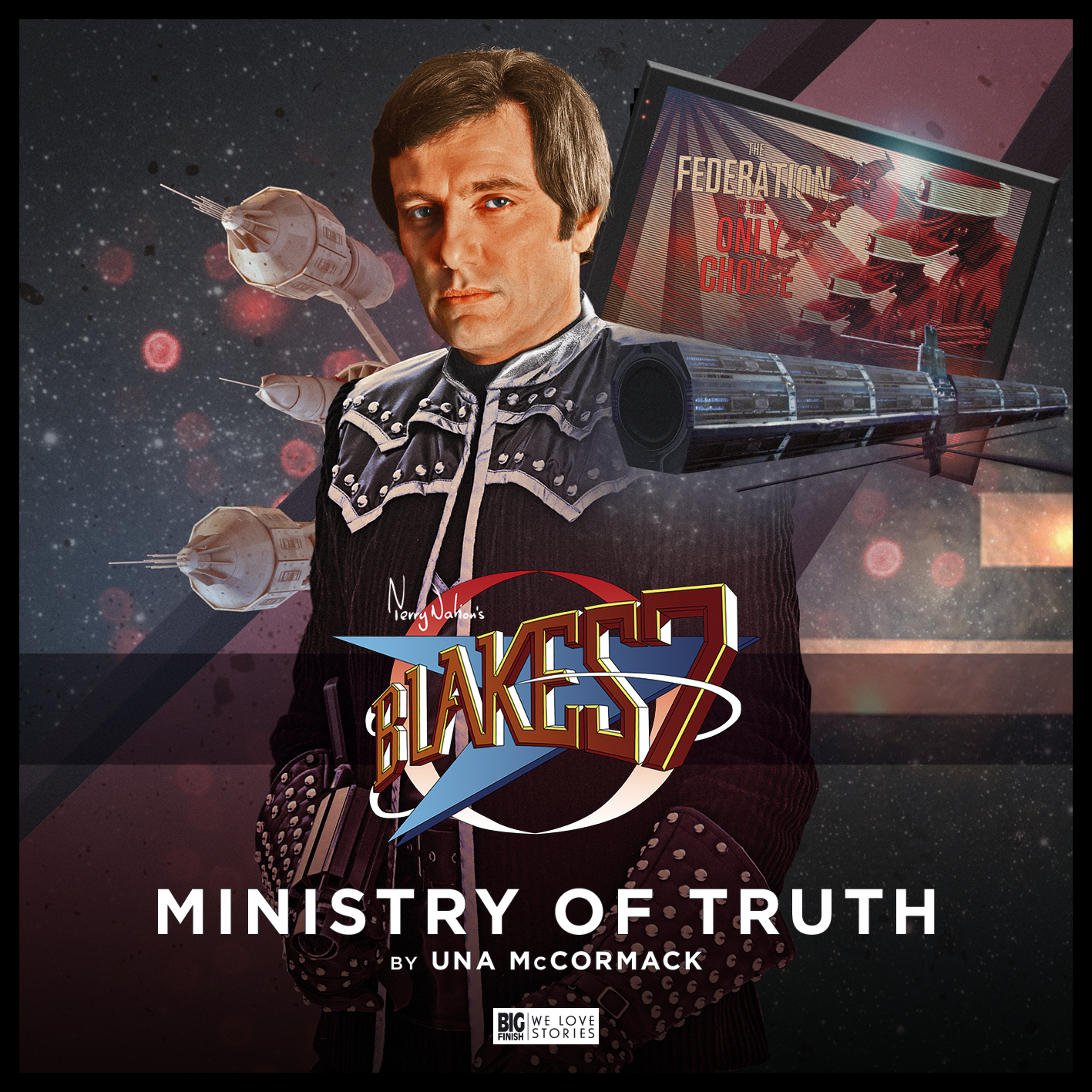

 Of course, the fate of Corrolos apparently pales in comparison to the traumas and tribulations of "House Tarrant". While the TV series occasionally focused on the family links of some of the main characters, it's interesting that Big Finish has over the years sought to develop the characters in the audio plays by providing them with (in some instances) contrived backstories that were never even hinted at in the TV series (eg Vila's father is a former Federation governor and high councillor, Avon and his elder brother were members of a neo-fascist, evangelical cult, and Dayna's mother, thought killed in Hal Mellanby's rebellion, is still alive). The Tarrant family history proves to be just as convoluted, as - in what smacks of fanwank - we are introduced to Del Tarrant's other brother who, it is inferred, we've met before - in fact, as early as The Way Back, the very first episode of B7.
Of course, the fate of Corrolos apparently pales in comparison to the traumas and tribulations of "House Tarrant". While the TV series occasionally focused on the family links of some of the main characters, it's interesting that Big Finish has over the years sought to develop the characters in the audio plays by providing them with (in some instances) contrived backstories that were never even hinted at in the TV series (eg Vila's father is a former Federation governor and high councillor, Avon and his elder brother were members of a neo-fascist, evangelical cult, and Dayna's mother, thought killed in Hal Mellanby's rebellion, is still alive). The Tarrant family history proves to be just as convoluted, as - in what smacks of fanwank - we are introduced to Del Tarrant's other brother who, it is inferred, we've met before - in fact, as early as The Way Back, the very first episode of B7.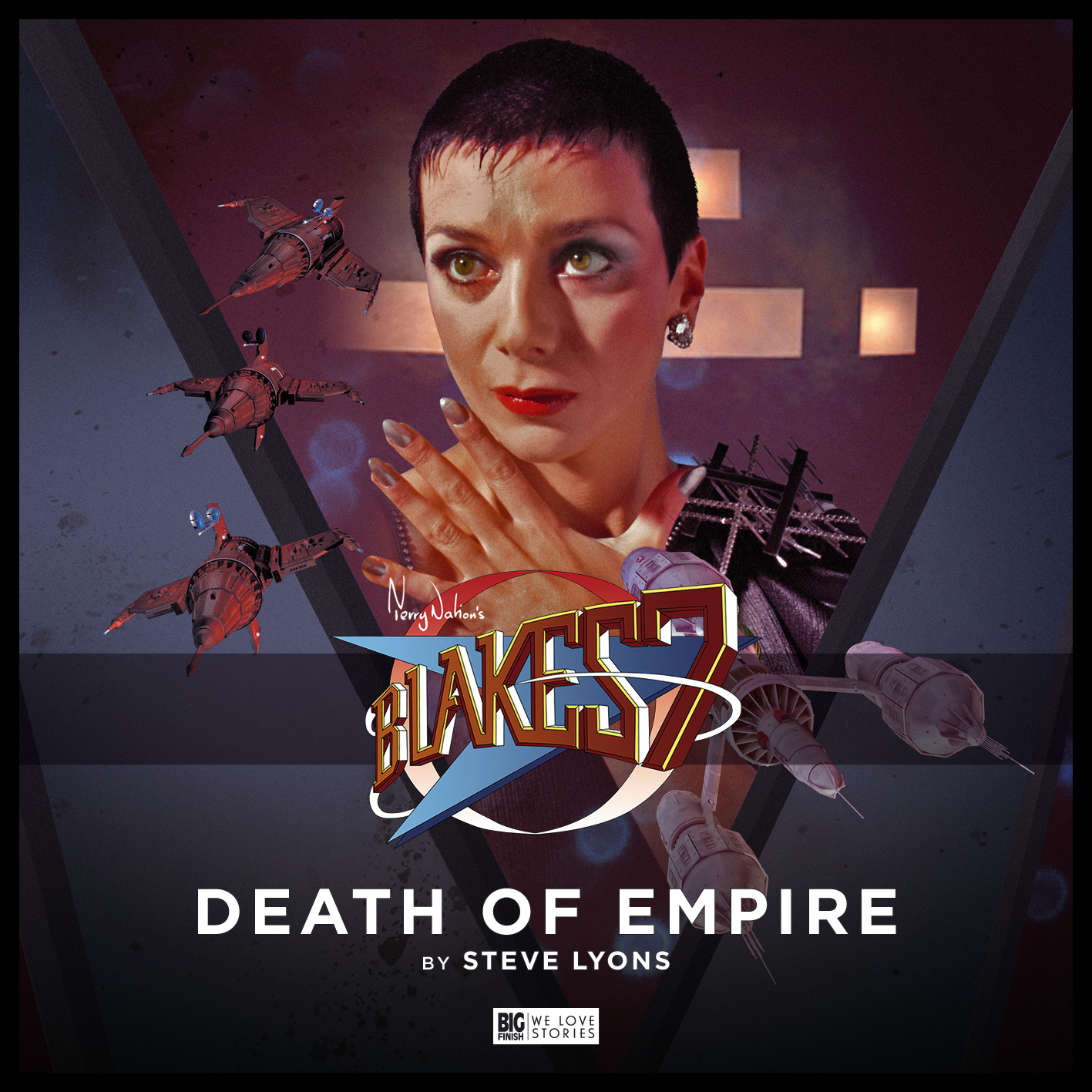
 However, the standout performance of the play is from Trevor Littledale as Maldor, the late sovereign’s chancellor. Littledale delivers a regal, diplomatic and understated turn that makes you warm to him as a character, little realising that he has a few tricks up his iron sleeve. His reserve also stands out against the extroverted Servalan and the smooth-talking, brown-nosing President. Indeed, this is one of the few B7 episodes where you find yourself rooting not for the Liberator crew but for Maldor and Kalion. Indeed, the conclusion – and the twist – is a masterstroke, and it seems only fitting that Kalion’s destiny is assured.
However, the standout performance of the play is from Trevor Littledale as Maldor, the late sovereign’s chancellor. Littledale delivers a regal, diplomatic and understated turn that makes you warm to him as a character, little realising that he has a few tricks up his iron sleeve. His reserve also stands out against the extroverted Servalan and the smooth-talking, brown-nosing President. Indeed, this is one of the few B7 episodes where you find yourself rooting not for the Liberator crew but for Maldor and Kalion. Indeed, the conclusion – and the twist – is a masterstroke, and it seems only fitting that Kalion’s destiny is assured.
 But what makes this story most disappointing is the portrayal of the regular characters. To his credit, Darrow resists giving Avon all the best lines and the best scenes. However, while he ought to know all the characters well, the dialogue he writes for them just doesn’t sound like any of them. There is also a sense of distrust and bitchiness between the characters, particularly Avon and Cally, that just doesn’t seem warranted in the story and is not portrayed in any of the other serials in this boxset (or indeed in the TV series). “I’m the telepath, Dayna!” Cally almost snaps at one point, when Dayna expresses reservations that Tarrant and Vila may be heading into a trap. Vila also shows a dependence on Tarrant’s heroism that jars with his character. The supporting cast try their best with the script but, as I’ve written elsewhere, Darrow is exceptional when he works with other people’s B7 material, he’s just not necessarily adept at writing his own!
But what makes this story most disappointing is the portrayal of the regular characters. To his credit, Darrow resists giving Avon all the best lines and the best scenes. However, while he ought to know all the characters well, the dialogue he writes for them just doesn’t sound like any of them. There is also a sense of distrust and bitchiness between the characters, particularly Avon and Cally, that just doesn’t seem warranted in the story and is not portrayed in any of the other serials in this boxset (or indeed in the TV series). “I’m the telepath, Dayna!” Cally almost snaps at one point, when Dayna expresses reservations that Tarrant and Vila may be heading into a trap. Vila also shows a dependence on Tarrant’s heroism that jars with his character. The supporting cast try their best with the script but, as I’ve written elsewhere, Darrow is exceptional when he works with other people’s B7 material, he’s just not necessarily adept at writing his own!




